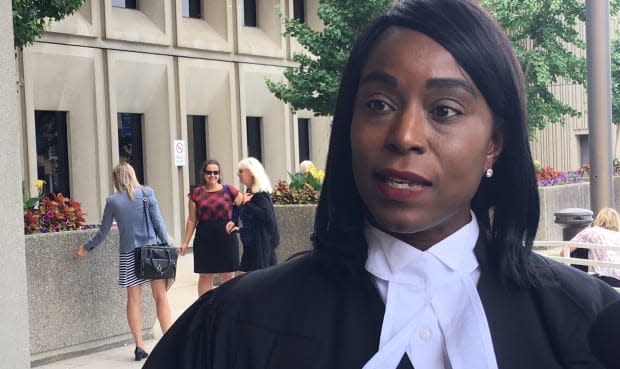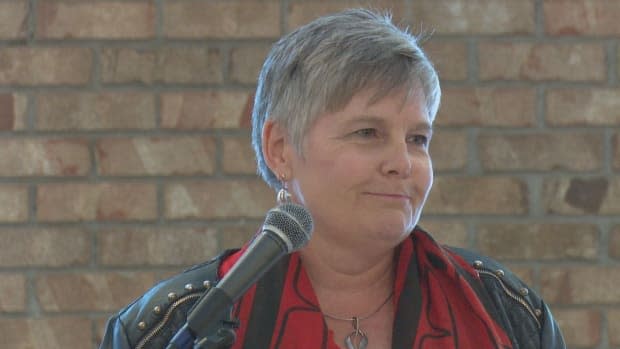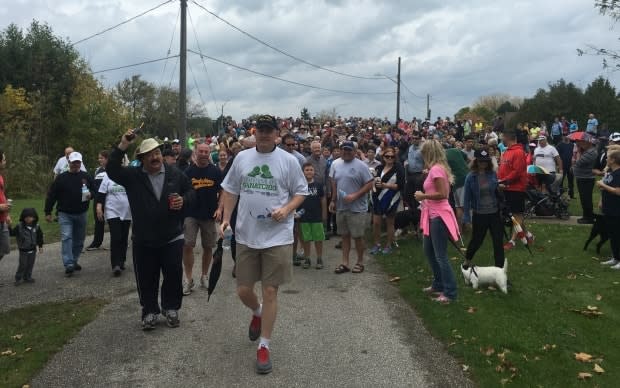Mayor Dilkens weighs in at Ganatchio Trail murder trial; some legal experts ask why
The decision of Mayor Drew Dilkens to insert his voice into the sentencing hearing of a man convicted second degree murder for brutally beating of a senior on the Ganatchio Trail in October of 2017 is being questioned by some within the legal community.
"I offer these remarks on behalf of the entire city for whom I am elected to lead," the statement written by Dilkens read.
In October of 2017, Sara Anne Widholm was brutally attacked and beaten on the Ganatchio Trail -- she died over a year later. In December, after a two-week trial, 24-year-old Habibullah Ahmadi, who admitted to using cannabis and magic mushrooms the day of the crime, was convicted of second degree murder in her death.
At last week's sentencing hearing, Dilkens provided a community impact statement — an unusual step for a mayor to take.
"I actually asked if I could submit a community impact statement on behalf of the community as a whole and I don't think I'm alone when I say that when I heard the details of what had happened to Ms. Widholm on the Ganatchio Trail a couple of years ago, it really had a profound impact on me," Dilkens told the CBC.

"I wanted to make sure the court understood what that impact was when reflecting on the sentence for the defendant."
The community impact statement was given to Justice Bruce Thomas to help him decide how to sentence Ahmadi. It stands in contrast to more typical victim impact statements, as it is meant to show how the crime has affected the community as a whole, as opposed to a family member or someone close to the victim.
Dilkens's statement is printed on city letter head and he exclaims it is made on behalf of the entire city he was elected to lead.
Something needs to be done in our community to address the upsurge of drug use and homelessness and things that really affect these kinds of criminal activities occurring in the first place. - Linda McCurdy
In the case of Ahmadi, the sentence for second degree murder is predetermined to be a life sentence with a minimum of 10 years before he can be considered for parole. So what Justice Thomas can determine is when he can be eligible for parole after that ten years.
"Things like this -- the savage beating beating of Sara Anne -- 'just don't happen in Windsor'," one section of the statement reads.
Ahmadi's defense lawyer Patricia Brown who was asking for the entire statement to be thrown out, took exception to that line in particular.

"That particular statement is misleading. It could lead a person or an Ontario parole board that's reviewing Mr Ahmadi's case to potentially perceive that this is so heinous and so egregious that this doesn't happen here," Brown said.
"All I did was a quick google search "Windsor- senior attack violence" and yes, Ahmadi's case comes up, but also so does other cases in our jurisdiction where senior citizens or other individuals who were vulnerable were attacked in our jurisdiction. And the question I had was: 'Where was the mayor then?'"
As examples, Brown points toward an incident in 2016 where a man randomly attacked an 83 year old woman from behind on Ottawa street, stabbing her multiple times in the face, as well as a 2012 road rage incident where an 82 year old man was one of two people beaten.
It seemed to fly in the face of all the protection of charter of rights that protect people who are charged with a crime from having to face more than already they're up against. - Melinda Munro
Crown attorney Renee Puskas refused to speak for this story but in court she argued she saw nothing wrong with the '"just don't happen in Windsor" comment, the fact the phrase was written in parentheses showed it was meant to be rhetorical and the entire statement showed the emotional impact the crime had on the community.
Justice Thomas agreed and allowed the statement in its entirety but added that he doesn't intend to give the mayor's statement more value that its worth or be distracted by it.
Unconventional statement
Dilkens recognizes the uniqueness of a mayor interjecting in a case in this manner.
"I think its fair to say that it's somewhat unconventional for a mayor to wade into criminal matters, you just don't see that happen that often," he said.
It is very rare, according to legal professionals CBC spoke with for this story. And they also question why the mayor would take this step.
Melinda Munro, who is an advisor today but formerly practiced constitutional law, said she was stunned by the mayor's statement and called it inappropriate, pointing out Dilkens also sits as chair of the police services board.

"For the mayor to speak in an official role as the government.... about the nature of that crime and about how that crime should affect the sentence that young man should serve, it seemed to fly in the face of all the protection of charter of rights that protect people who are charged with a crime.
"They're up against the police and the Crown and now they're up against the mayor too?"
Criminal lawyer Linda McCurdy agreed with Brown that she would not want for a letter like this to be filed against one of her clients. She said there were more constructive ways for the mayor to make statements about the crime.
"This... convicted person at this point was on drugs and what effect does drugs have on the community, where is that in the impact statement, McCurdy said.

"Something needs to be done in our community to address the upsurge of drug use and homelessness and things that really affect these kinds of criminal activities occurring in the first place."
Why this case?
Dilkens' perspective did not change when confronted with the criticism.
He said the large community walk that was held after the attack moved him greatly. There he also heard from people in the community about how the crime had affected them.

"Let's not gloss over the fact that a murder was committed and that murder impacts people in different ways," Dilkens said.
"If I felt a profound impact about other criminal action that took place in the city, I would feel the same about writing a community impact statement for that as well."

